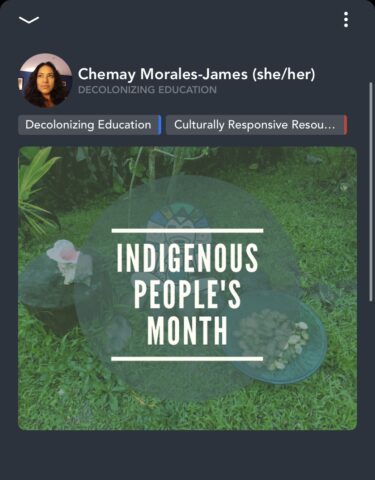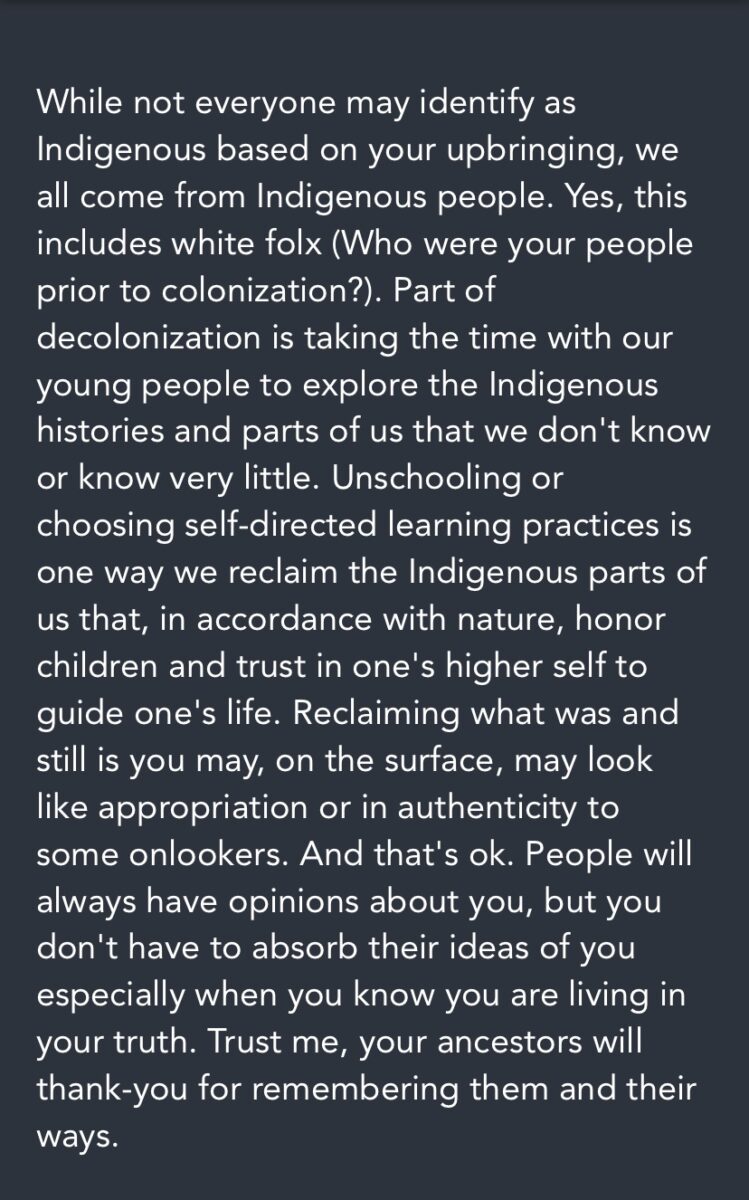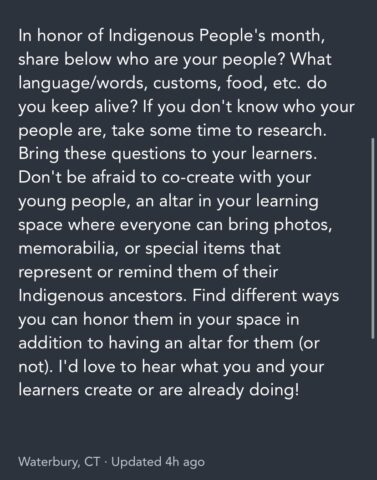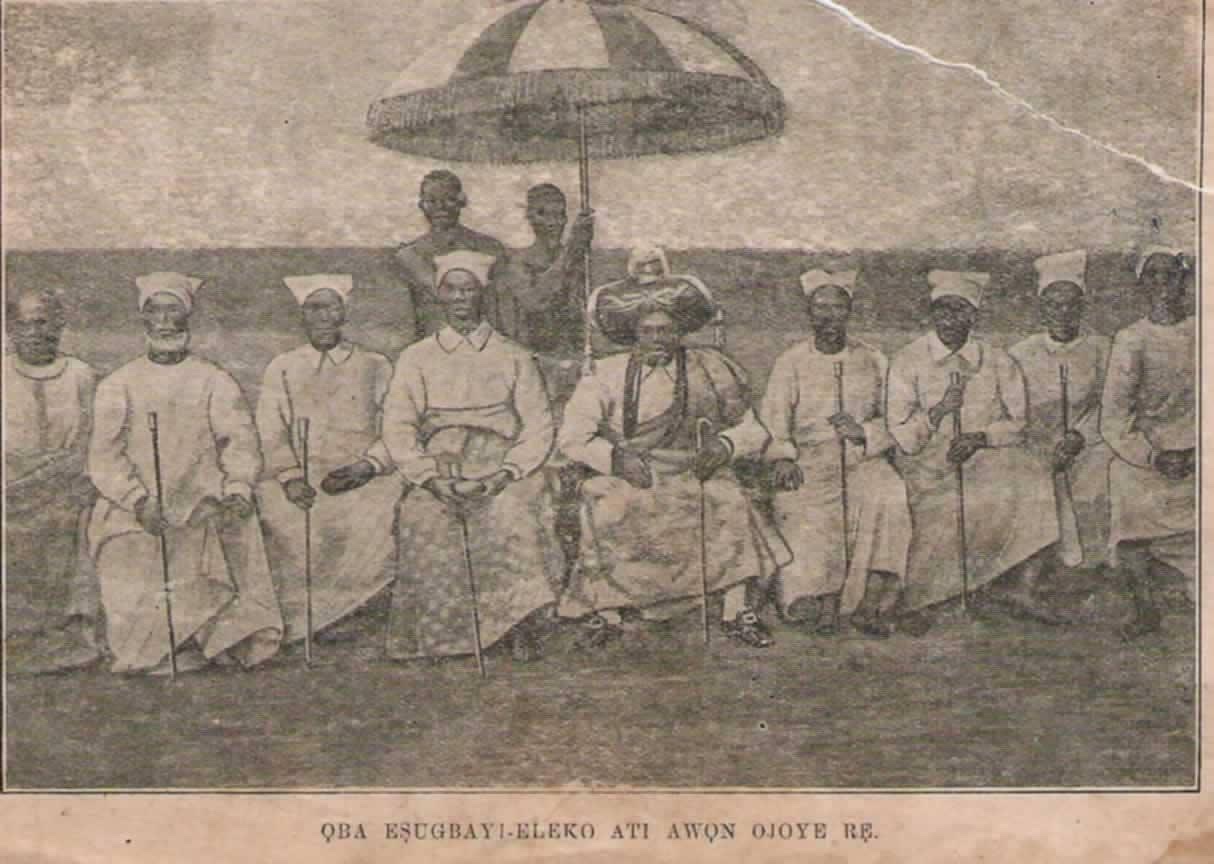This post was written in response to a post by Chemay Morales-James, Founder of My Reflection Matters, a thriving community of homeschooling families all over the world.
This was her prompt:



This is my answer:
I am Olori Lolade Rukayat Aliyu-Siyonbola. Daughter of the Yorubas, most specifically the Ijebus and Omo Eko. We are the most visible Black indigenous group throughout the Diaspora and even the world, as our customs traveled with the millions of Ancestors trafficked across the Atlantic Ocean, becoming absorbed–along with a number of other traditional systems–into new syncretized spiritual and cultural systems. The majority of these new systems remembered their Yoruba heritage oft-times more than their other indigenous influences.
I am the daughter of African human traffickers of “royal” blood as well as of those who were trafficked. My people are the Fidipotes, the Aliyu-Siyonbolas, the Akinsemoyins, the Durosinmi-Ettis.
In my home, we have kept alive the spoken and written Yoruba, albeit with minimal engagement these days. This prompt–along with so many recent events–is convicting me to work harder at that today and in the immediate future. I have kept alive my love for indigenous foods like egusi, eba, ikokore, amala, ewedu, okra, suya and others by cooking those I can every opportunity I get, teaching my daughter how to make what I know how to make and buying the others whenever we have the opportunity. We also study the beneficial properties of many of these foods. We have kept our connection to our Yoruba roots alive in our several visits to Nigeria, through which we have been able to engage more deeply with what is probably my greatest love in my heritage outside of our language: our textile design and production heritage. This mode of transmission of deeply historical and spiritual knowledge has been a tremendous gift to the world, and one that I will continue to explore more deeply.
It’s wild, Chemay, that you bring up the idea of a communal altar–that was one of the requests of our Ancestors when we moved into our home in Windsor earlier this year. We have since established one on which we’ve placed the photographs and names of the Ancestors to whose names and photographs we have access, along with some of their favorite foods (which we replace almost daily), hand-drawn art (by seven-year-old Pros), a candle, incense, a plant and our written prayers. We started out setting it up once a month, and now we are keeping it up longer term.
I do believe that the greatest ways that we can continue to uplift and uphold the messages and gifts of our Ancestors is to operate in our Divine gifts and our Highest Destinies, cultivating the unique and original seeds of creative genius that each of us has. Channeling and embracing our histories in the process. Your prompt is a much-needed and timely reminder to me that we must not only learn but master our histories and heritages, through conversations with our parents, aunts, uncles, grandparents and all the relatives we have access to, those who are willing and able to bestow on us this critical and invaluable part of our identities. We must also master our indigenous languages, to whatever extent we are able, as they are invaluable databases of our histories, customs and other intelligence.
Because of your prompt, we will re-engage with our Family Tree Project this month, with more commitment, and we welcome other families to join us in our quest for more historical and cultural knowledge of ourselves.
Here is a link about the early royal families of Lagos, from which my family is descended, some of whom are pictured above ❤️








